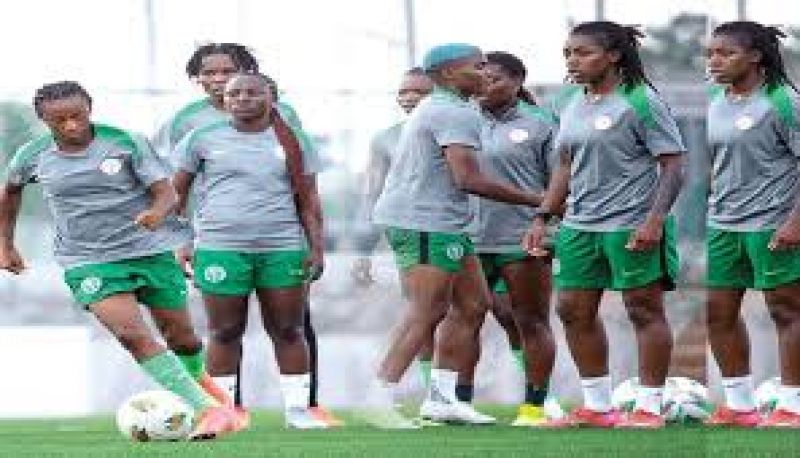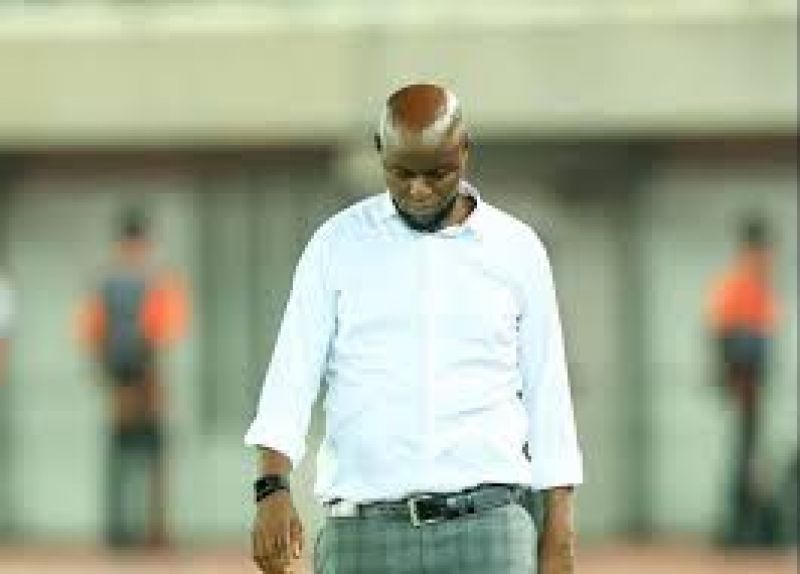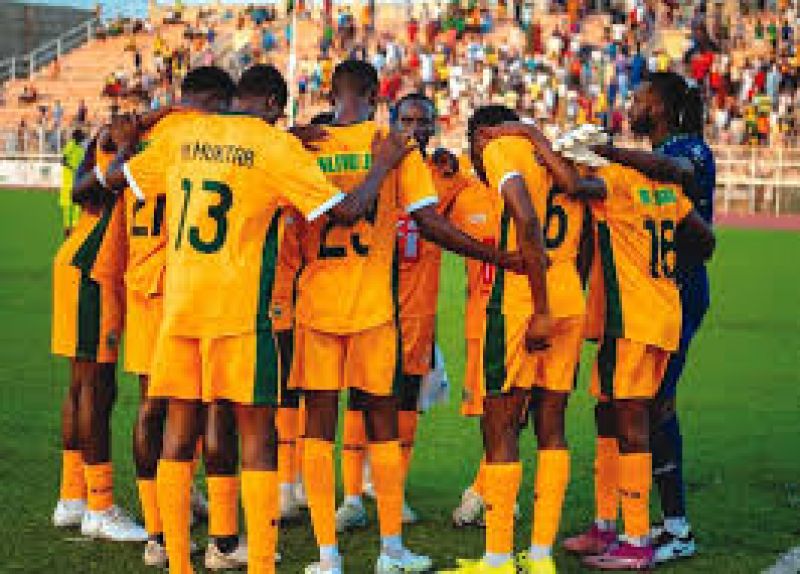By Daily Sports on December 19, 2015

“To renounce liberty is to renounce being a man, to surrender the rights of humanity and even its duties.” – Jean –Jacques Rousseau, the Social Contract.
It started as a quiet agitation. Today, the Nigerian league has blossomed into a somewhat unimaginable proportion. From the modest number of eight pioneering club sides in 1972, all featuring in a single division, the league has grown in stature and importance. Parading 103 club sides of 3,503 players in the 1995 season, the national league, one of the busiest in Africa and a veritable source of talent for the European scene, ensured mass movement and participation, as teams engaged in power struggle.[1]
The milestone in Nigerian football history was attained on the 12th day of May, 1990, when 16 club sides were paired in the first professional league fixtures in the country. Professional football had kicked off in Nigeria 102 years after England pioneered the venture worldwide. By 1989, the year preceding Nigeria’s adoption of professional football, the venture had virtually swept across the globe. What could not be imagined some years back were unfolding[2]!
From the attainment of this great milestone in the Nigerian League up till this moment, one endemic malady prevails: The malady of professionalism in the all-round contractual relationship between contracting parties – in this case between the Club Management and Football Player. The methods adopted by parties who wish to establish contractual relationship in the League does not in any way guarantee equality and freedom, especially on the side of the Football Player. One therefore wonders if the term “contract” is alien to the various Nigerian Football League Club Managements. We set forth to briefly look at the word “contract” with the vehement view that things be done right and in accordance with the dictates of social justice, equity and good conscience amongst all parties to a contract in the Nigerian Professional Football League.
In common law legal systems, a contract[3] is an agreement having a lawful object entered into voluntarily by two or more parties, each of whom intends to create one or more legal obligations between them. The elements of a contract are “offer” and “acceptance” by “competent persons” having legal capacity who exchanges “consideration” to create “mutuality of obligation”[4].
When Max Weber stated that the function of the freedom of contract was to provide an opportunity for those who held property to utilise that property on the market as a means of acquiring power over others[5], he was clearly adverting to the exercise of power associated with the imbalance within a contractual relationship.
Undoubtedly, Vilhelm Aubert had similar phenomenon in mind when he proposed that freedom of contract involved the legal order supporting the accumulation of value and contributing to the maintenance or increase of discrepancies with society[6]. According to Aubert, freedom of contract means that legal norms do not positively fix the content of contracts.
Equality and freedom to contract arguably is the strongest cornerstone of the doctrine of free market libertarianism. It is through the liberal outstretched arms extended through freedom and equal powers to contract that individuals (in this case Clubs versus Players) entail a general freedom to choose with whom to contract, whether to contract or not, and on which terms to contract.[7]
The relationship between Clubs and Football Players in Nigeria is founded on an employer-employer platform/relationship. The basis of employer-employee relationship in most parts is the contract of employment and the ordinary incidents of that relationship. The contract of employment, which is the plank of the relationship, is however a product of industrial revolution and the 19th century laissez-faire is its principal justification.[8] The 19th century laissez-faire rested on two legs, the freedom of the contracting parties and the sanctity of contracts[9]. Even the Courts consider it a sacred duty to foster the freedom of contractual parties and vindicate the sanctity of contracts. Sir George Jessel aptly opined in 1875 that “if there is one thing more than another which public policy requires, it is that men of full age and competent understanding shall have the utmost liberty of contracting and that their contracts, when entered into freely and voluntarily, shall be held sacred and shall be enforced by the court of justice”.[10]
A British philosopher, Jurist and social reformer[11]commenting on the same idea emphatically posited that “no man of ripe years and of sound mind, acting freely and with his eyes open ought to be hindered, with a view to his advantage, from making such a bargain in the way of obtaining money as he thinks fit, nor (what is a necessary consequence) anybody hindered from supplying him, upon any term he thinks proper to accede to”.
In this jurisdiction, over and over again, the courts have held that Contracts of employment like other contracts, their creation and termination are both subject of the general principles governing the law of contract. Hence when the contract is in writing the parties are bound by the express terms and conditions so stipulated and nothing more.[12]
[1] Kunle Solaja (2014), Going for Goals, Unfolding Nigerian Football’s Hidden Stories. (Extra Time Communications Limited, Ikeja). p. 171.
[2] See Kunle Solaja op. cit. p. 181.
[3] Informally known as an agreement in some jurisdiction. Even here in Nigeria, the words “contract” and “agreement” are being used interchangeably mostly amongst non lawyers.
[4] http://contracts.uslegal.com/elements-of-a-contract /. retrieved on 7/16/15.
[5] Max Weber, Wirtschaft und Gesellschaft, 4 Aufl., 1-2 Halbband, Tübingen 1956 p. 455. Cited in Thomas Wilhelmsson, Contract and Equality.
[6] Vilhelm Aubert, Rettens sosiale funksjon, Oslo-Bergen-Tromsö 1976 p. 78. Cited in Thomas Wilhelmsson, Contract and Equality.
[7] Underlining mine for emphasis.
[8] Adeogun A.A. (1986) From Contract to Status in Quest for Security. Inaugural Lecture. Lagos State University Press, Lagos. P. 8.
[9] We have argued in our earlier articles that sanctity of contract is a doctrine that is highly revered and involved stakeholders in the Nigerian Football Industry should not send it to the mud.
[10] Printing and Numerical Registering Co v. Sampson (1875) L.R. 19 Eq 462 @ p. 465.
[11] Jeremy Bentham (1952): Economic Writings ed Stask London in Adeogun (1986) op cit. p.3 cited in A. Oyesola: Foisting a willing employee on an unwilling employer: the remedy of re-instatement revisited NJLIR Vol. 3 No. 2 (2009) p.2.
[12] Olaniyan v. University of Lagos (1985) 2 NWLR 559 @669. Justice Karibi-Whyte JSC (as he then was).
Source Daily Sports
Posted December 19, 2015
You may also like...

Equatorial Guinea disqualified from AWCON

Ibrahimovic Eyes Manchester United Return

BREAKING NEWS: Former Newcastle United boss Chris Hughton...

Del Potro knocks out Federer

Nigeria Lose Second Game To West Indies In...

Tuchel Vows To Hunt Down Man City Ahead...

 Osimhen strikes down stubborn Juve to book round 16 spot
Osimhen strikes down stubborn Juve to book round 16 spot Ogazi wins SEC Scholar-Athlete of the Year
Ogazi wins SEC Scholar-Athlete of the Year Falcons begin training ahead Lionesses clash
Falcons begin training ahead Lionesses clash Newcastle cruise 9-3 into UCL last 16, Leverkusen dump out Olympiacos
Newcastle cruise 9-3 into UCL last 16, Leverkusen dump out Olympiacos Finidi wary of difficult Barau test
Finidi wary of difficult Barau test Pillars coach optimistic of NPFL survival
Pillars coach optimistic of NPFL survival Cricket: NCF sets date for 2026 Women’s T20i
Cricket: NCF sets date for 2026 Women’s T20i Unbeaten Oshoba keen to extend dominant UK run
Unbeaten Oshoba keen to extend dominant UK run Family supports Joshua’s return despite fears — Uncle
Family supports Joshua’s return despite fears — Uncle Tennis triggers buzz at 2nd Niger Delta Games
Tennis triggers buzz at 2nd Niger Delta Games Gala fans to honour Osimhen’s late mother
Gala fans to honour Osimhen’s late mother Eagles to play Iran, Jordan in four-nation tourney
Eagles to play Iran, Jordan in four-nation tourney Rangers International going, going . . . (63,580 views)
Rangers International going, going . . . (63,580 views) Amaju Pinnick: A cat with nine lives (54,888 views)
Amaju Pinnick: A cat with nine lives (54,888 views) Second Term: Amaju Pinnick, Other NFF Heavyweights Home to Roost •How Pinnick Broke the Jinx (52,801 views)
Second Term: Amaju Pinnick, Other NFF Heavyweights Home to Roost •How Pinnick Broke the Jinx (52,801 views) Current issues in Nigerian sports: Matters arising (52,431 views)
Current issues in Nigerian sports: Matters arising (52,431 views) Sports Development: Zenith Bank on the zenith (52,346 views)
Sports Development: Zenith Bank on the zenith (52,346 views) Missing $150,000 IAAF Grant: Solomon Dalung’s Hide and Seek game (52,260 views)
Missing $150,000 IAAF Grant: Solomon Dalung’s Hide and Seek game (52,260 views) Gov. Abdullahi Ganduje’s solid footprints, commitment to sports development in Kano State (52,134 views)
Gov. Abdullahi Ganduje’s solid footprints, commitment to sports development in Kano State (52,134 views) NFF Presidency: Pinnick, Maigari, Ogunjobi, Okoye in Battle for Supremacy (51,680 views)
NFF Presidency: Pinnick, Maigari, Ogunjobi, Okoye in Battle for Supremacy (51,680 views) Olopade, BET9A wave of revolution in NNL (50,853 views)
Olopade, BET9A wave of revolution in NNL (50,853 views) Commonwealth Games 2018: Shame of Muhammadu Buhari, Solomon Dalung (49,378 views)
Commonwealth Games 2018: Shame of Muhammadu Buhari, Solomon Dalung (49,378 views) Ibrahimovic’s Man U exit: Whose decision is it? And in whose interest? (47,768 views)
Ibrahimovic’s Man U exit: Whose decision is it? And in whose interest? (47,768 views) John Mikel Obi: Segun Odegbami’s Outrageous Call! (47,242 views)
John Mikel Obi: Segun Odegbami’s Outrageous Call! (47,242 views)